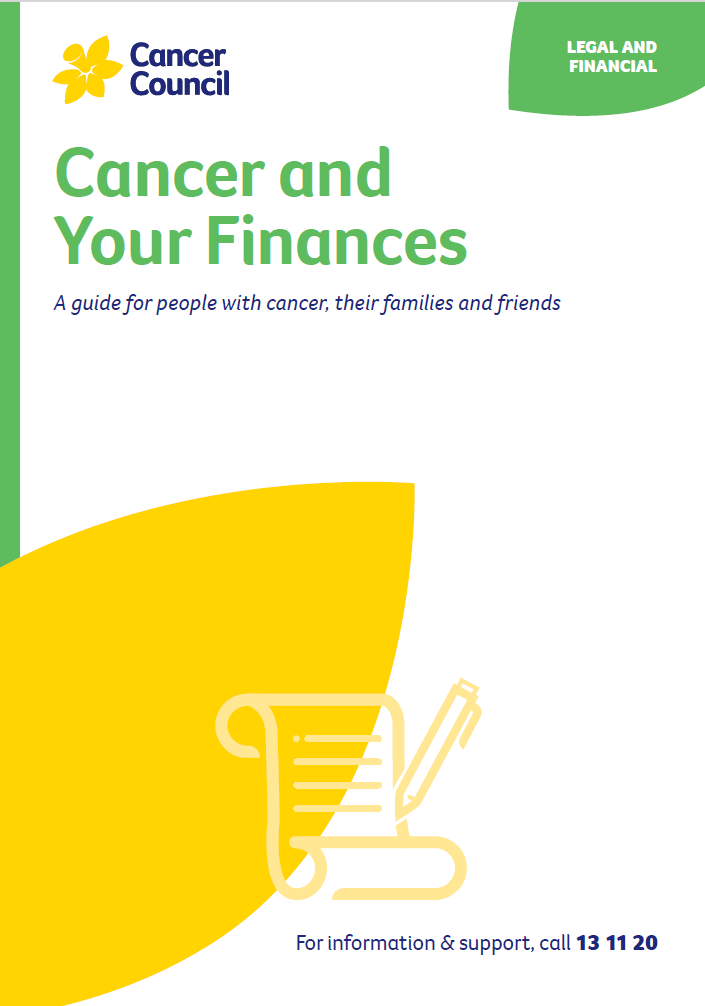- Home
- About Cancer
- Coping with a diagnosis
- Cancer and your finances
- Reducing debts and expenses
- Utility bills
Utility bills
Utilities include services like electricity, gas, water, phone and internet. If you need help paying for your utilities, you have some options.
Learn more about:
- Applying for hardship programs
- Checking if you can get a rebate or concession
- Asking about payment vouchers and grants
- Registering for an energy efficiency program
- Seeking support and resolving disputes
- Video: Debts and everyday expenses
Apply for hardship programs
Most utility providers are required by law to offer payment options to customers who are having trouble paying their bills. This is called a hardship policy, and how this works varies from provider to provider.
You may be able to set up a payment plan that will allow you to pay later (defer the payment) or pay several smaller amounts over a set period (pay by instalments). Once you register with a hardship program and are regularly paying something off your bill, your utility provider cannot cut off your supply. To find out more about individual hardship programs, contact your service provider.
Check if you can get a rebate or concession
Rebates and concessions can reduce the amount you owe on your utility bills. They are usually available to customers on low incomes, people receiving certain Centrelink payments and holders of some concession cards.
Special rebates may be available to customers who are medically unable to regulate their body temperature, or who need to use certain essential medical equipment (such as an oxygen concentrator) at home.
Ask about payment vouchers and grants
In most states and territories, customers in financial hardship can receive payment assistance vouchers or grants to put towards their utility bills.
These may be available through community welfare agencies such as the Salvation Army, or directly by the relevant state or territory government department.
To find organisations and government departments that provide rebates and vouchers visit moneysmart.gov.au and search for problems paying your bills.
Register for an energy efficiency program
Changing how you use energy may reduce your bills. Some states and territories offer free energy and water efficiency assessments to help customers find ways to use less energy and water. They may also help with energy-saving or water-saving repairs and alterations, such as offering a reduced fee for a plumber to fix your leaking taps.
Visit energy.gov.au for energy-saving tips, and to find assistance in your state or territory. Download the Light Bulb Saver app from the App Store or Google Play to see how much money you can save by using energy-efficient alternatives.
Seeking support and resolving disputes
Don’t be afraid to ask for help. Family members or friends might be able to help you find information or talk to a financial counsellor. Cancer Council 13 11 20 can sometimes help you find a financial counsellor.
Independent services can help you resolve disputes with your utilities provider. If you need help with a dispute about phones or the internet, the Telecommunications Industry Ombudsman may be able to assist – call 1800 062 058.
For disputes with water or gas providers, contact your state or territory’s energy and water ombudsman. For a list of ombudsman schemes, go to the Australian Energy Regulator and search for useful contacts.
I was embarrassed to ask for help, but it was a bad time for me to get sick. Getting help paying my water rates was much appreciated.
George
Video: Debts and everyday expenses
Podcast: Coping with a Cancer Diagnosis
Listen to more of our podcast for people affected by cancer
More resources
HWL Ebsworth Lawyers, Sydney, NSW; Leigh Aitken, Consumer; Mary Bairstow, Senior Social Worker, Cancer Centre, Fiona Stanley Hospital, WA; Lynette Brailey, Team Leader Financial Counselling, Cancer Council NSW; Corinne Jones and Siew Tan, Financial Counsellors, Cancer Council VIC; Penny Jacomos, Social Worker, Asbestos Diseases Society of South Australia, SA; Dr Deme Karikios, Head of Department – Medical Oncology, Nepean Cancer and Wellness Centre, Nepean Hospital, NSW; Valerie Parsons, 13 11 20 Consultant, Cancer Council SA; Viridian Financial Group, Melbourne, VIC.
View the Cancer Council NSW editorial policy.
View all publications or call 13 11 20 for free printed copies.

